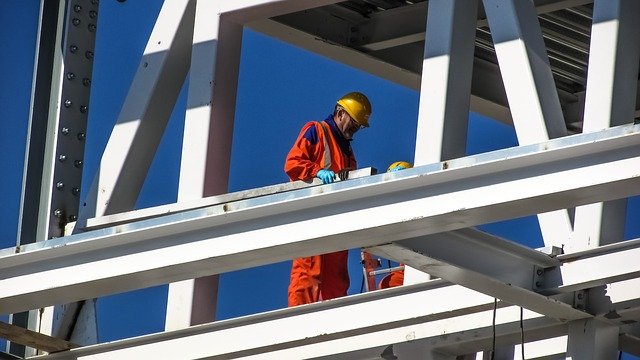Building Your Construction Knowledge Base And Foster Collaboration

Building your construction knowledge base will help create a collaborate more efficient team.
Every construction project is different, and yet all construction projects have some similarities. If you work in an industry long enough you’ll develop subject matter expertise that sets you apart from everyone else. This knowledge can be called upon for future projects, and will help you stand out from your colleagues. As frequently as not, it’s often an old-timer with a seemingly all-knowing repository of experience that becomes a true asset for any construction project.
Despite all this, having the majority of the expertise and know-how stored away in a small handful of people, limits the benefit it serves to the broader company. If a situation arises that they know how to deal with, but they’re not available at the moment, it’s not much help to anyone. And there’s also the concern that while they may be a reliable source of information in some areas, in others their knowledge may be outdated. It’s not unheard of for someone with a lot of expertise to try to tackle a problem using an archaic method. Having the collective feedback from a variety of sources can ensure the best resolution to an issue is reached.
Keep reading for,
Apprenticeships for Construction Knowledge Base
The conventional structure for passing along trade knowledge is that of apprenticeships. Plumbers, electricians, and numerous other specialties and fields operate under this structure. Signing up for a formal apprenticeship or training program is the precursor to becoming a licensed professional. During apprenticeships formal training and hands-on knowledge is passed down from experts to those entering the field. Their lengths vary depending on the program and field of study, but they’re typically 3-4 years.
In today’s construction job market, sometimes construction managers are at their wits end to find anyone available to do the work at all. If no one applies for the job with the requisite skills, they can’t get the work done at all. So they end up hiring anyone who’s able bodied and can reasonably follow directions.
Even if everyone on a jobsite has been formally trained in their field of work, there’s always knowledge that comes with years of work experience and handling a variety of situations.
How can construction companies continue the training of their contractors and crews so that they’re continually growing and learning?
Scheduled Training Sessions for Knowledge Transfer
One way is by scheduling required training sessions periodically. This can help augment their knowledge, and update them on newer technologies. In all likelihood over the course of five to ten years new tools, machines, and systems will become available that the company would like to leverage. When companies roll out a new tool, system or process, ensuring everyone comes up to speed on it will help with adoption and ensure it’s used safely.

Another way construction companies can keep their crews continuously learning and growing is by highlighting specific cases out on the construction site. If they come across a situation that only a few people know how to deal with, they can call everyone over to ensure they learn how to address that situation in the future. To be sure, such occurrences tend to gather the interest of those on site.
Online Construction Knowledge Base
With the advent of construction management software comes a new platform to record and save collective knowledge for future reference. This comes in many forms. The most basic is a knowledge base where people can record their comments for future use. This could be someone documenting the process for procuring new materials on site, or they could record best practices for taking a core sample from concrete. That way anyone working on that part of the project will know what’s expected of them when certain situations arise. Lists of approved vendors can be prepared, detailed processes can be documented, and knowledge can be shared and accessible for all. Having a place where contractors and construction managers can store their guidelines for all to access can really help with continuity across an organization.
Another way construction management software can foster knowledge sharing and collaboration is by collecting information for you and reporting it back. Linarc is among the construction management applications that will do so, so you can not only manage your projects, but improve your overall efficiency. One of the fundamental pieces of information we make accessible to you is contractor efficiency. With a construction site full of contractors, it may be difficult to know who’s a top performing contractor, and who needs improvement. When people are working together, it’s possible only the foreman knows how people are stacking up.
Construction management software can further foster collaboration and knowledge sharing through company-wide messaging systems. If people are able to chat with each other they can put their heads together and find solutions. For example, let’s say someone’s digging and hits a massive boulder. They can grab a pic of it and post to their corporate forum, and get everyone’s eyes on it. From there they can figure out if new equipment or manpower is needed to move it out of the way.
One aspect to Linarc’s messaging system is it includes the documents you’re referencing for context . Say for example you’re reviewing the construction plans, and you have a question. When you message someone they’ll receive a copy of exactly what you’re looking at so they can readily respond to your inquiry. This keeps everyone on the same page and helps reach decisions faster.
Another way construction management software can help bestow collective learning to individuals is in its task assignments. Already construction management systems such as Linarc, help keep each crew member tasked with sections of work. These tasks could readily include detailed instructions on completing the job that’s assigned to them. Contractors could receive a continual on each task assigned to them, and thus be learning daily as they progress through the project.
Conclusion
While technology continues to create advances in the construction industry, perhaps one of its greatest advancements is in fostering a collaborative learning environment for those that use it. Establishing a construction knowledge base will help ensure you have a healthy and growing team. At the end of the day, it’s people making decisions out in the field that bring a project together. Technology and planning can mitigate the many variables and uncertainties that develop as the project evolves, but it’s well trained, knowledgeable problem solvers that bring everything together.




